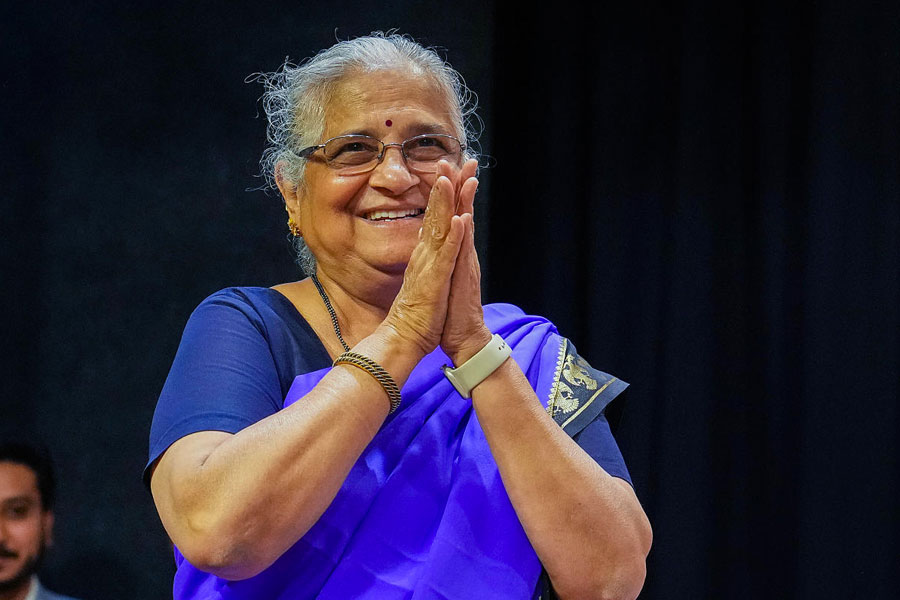Amid ongoing criticism of billionaire businessman Narayana Murthy’s suggestion that young professionals should work 70 hours a week to be successful, his wife, author and MP Sudha Murthy, has come forward in his defense.
In an interview with NDTV, she emphasised that when people are passionate about their work, time never becomes a limitation.
Speaking on NDTV’s show India Through the Eyes of Its Icons, Sudha Murthy reflected on the early days of Infosys and the sacrifices made to build the company.
She recalled that her husband and his colleagues worked 70 hours a week or even more, as they had no capital but were determined to succeed.
"There’s no magic wand that could make Infosys so large. It was sheer hard work, part of luck, part of the correct timing or in the correct place, everything is there," she said, as quoted by NDTV.
Sudha Murthy also revealed that when Narayana Murthy expressed concerns about their personal life, she took it upon herself to manage the family.
"I made that decision, and I also decided there was no point cribbing and telling your husband, ‘Oh, you are not there,’ because he's doing a bigger work," she explained.
Advocating for mutual support in relationships, she said, "Behind every successful woman, there’s an understanding man. So, when Murthy was working, I supported (him). When I am working, Murthy is supporting. That’s (what) I call life."
She further pointed out that her husband's work ethic was not an exception. Professionals in fields like journalism and medicine, she noted, often work long hours as well.
Sudha Murthy also spoke about how she kept herself engaged by writing, a habit that intensified over time.
Later, she became involved in the Infosys Foundation, after their children moved abroad. "I worked overtime and currently work more than my husband, and he is the supporting force behind me," she stated.
Commenting on the nature of time itself, she remarked, "God has given 24 hours to all, whether you are rich or poor, beautiful or ugly. How you want to spend it is left to you. And if you want to do anything passionately, it requires time. And if you are passionate about your work, then your partner should support it."
In early January, Larsen & Toubro chairman S.N. Subrahmanyan advocated for a 90-hour work week and suggested that employees should even give up Sundays.
“What do you do sitting at home? How long can you stare at your wife? How long can the wives stare at their husbands? Come on, get to the office and start working,” he further said.
Narayana Murthy made his remarks in an October 2023 podcast.
He had stated that India’s work productivity was "one of the lowest in the world" and urged young professionals to consider working 70 hours a week.
Citing examples of Germans and Japanese during the Second World War, he underscored the need for increased work commitment to boost the country’s progress.
In Germany and Japan, the standard work week right now is 40 hours, typically spread over five days (Monday to Friday), with a maximum of 8 hours per day.
In India, standard working hours are regulated by the Factories Act, 1948, limiting employees to a maximum of 48 hours per week or 9 hours per day, with overtime requiring additional compensation.
His comments have drawn sharp criticism from young professionals who argue that such work hours lead to burnout and a lack of work-life balance.











